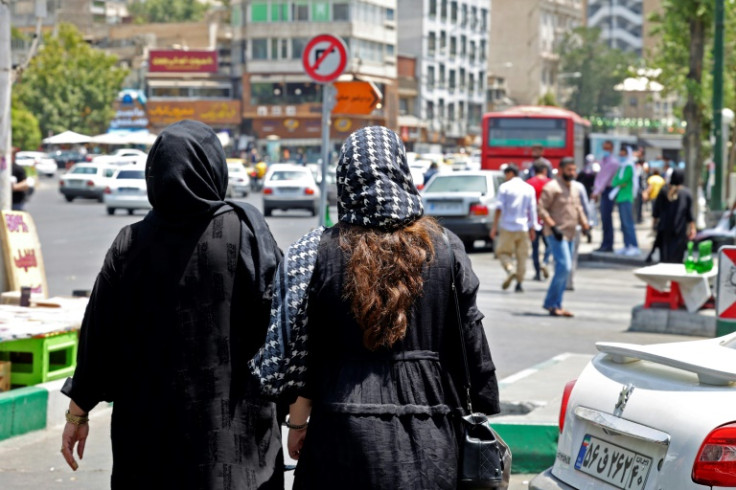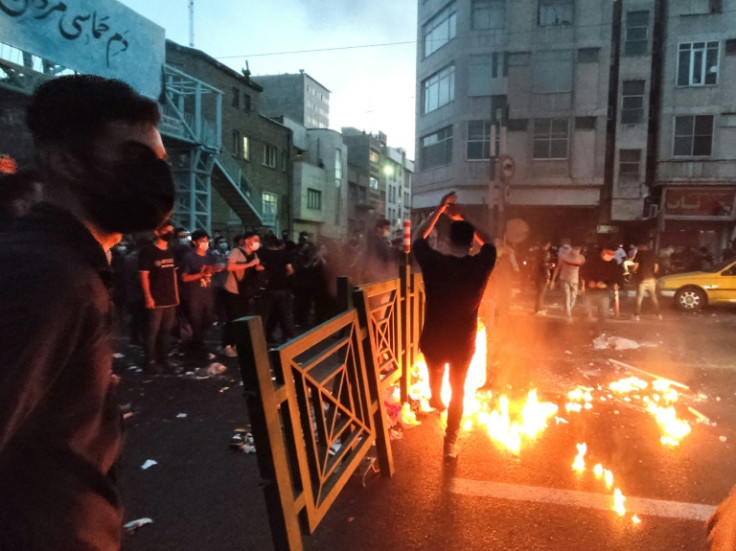Iran Governor Wants 'Negative Measures' Taken Against Women Not Wearing Hijab

KEY POINTS
- The governor of Qom province proposed taking "negative measures" against women not wearing hijabs in public
- Conversations among Iran officials regarding measures against hijab law violators have increased
- Iran's security forces closed down establishments linked to celebrities who opposed the hijab law
Iran is still keen on punishing women who do not wear hijabs in public, a report by a Washington, D.C.-based think tank has revealed.
Mohammad Taghi Shah Cheraghi, the governor of the Iranian province of Qom, proposed that the provincial government should take "negative measures" against unveiled women "in accordance with the law," according to an update released by the American Enterprise Institute's Critical Threats Project (CTP), with support from the think tank Institute for the Study of War (ISW).
Shah Cheraghi made the comments Tuesday during a meeting held by 19 Dey Headquarters, an organization that focuses on preserving Qom's status as Iran's religious and revolutionary heartland.
The meeting attended by Shah Cheraghi revolved around the organization's actions in the "field of chastity and hijab." Conversations among government officials about implementing "positive" and "negative" measures to enforce the mandatory hijab law have grown in recent weeks, according to the report, though it is unclear what measures are being discussed.
Shah Cheraghi's remarks are "noteworthy" as his family has connections to the office of Supreme Leader Ali Khamenei, and given how "significant" the recent spate of poisonings targeting schoolgirls has been in his province compared to the rest of the country, CTP said.
The first reported gas poisonings took place in Qom in November last year, when 18 schoolgirls from one high school fell ill with symptoms such as nausea, headaches, difficulty breathing, heart palpitations and lethargy, according to Iran International. In another incident in Qom February, more than 100 students from 13 schools were taken to hospitals, CNN reported, citing Iranian state media.
CTP suggested in the report that the incident may be related to the issue of women's rights, particularly the hijab.
The think tank previously suggested that the Iranian regime is "tolerating the countrywide, coordinated campaign to poison schoolgirls."
Meanwhile, Iran's Law Enforcement Command continues to go after famous figures in the country who publicly opposed the mandatory hijab law.
At least eight "celebrity-affiliated" restaurants and commercial complexes in Iran's capital city of Tehran have been shut down. Tasnim News Agency, which is affiliated with the Iranian Armed Forces' Islamic Revolutionary Guard Corps, claimed that the closures sent a clear message that "celebrities are not exempt from the law."
The Iranian regime also arrested two actresses and charged them with the crime of unveiling in public and posting pictures of themselves without a hijab online.
Iran is facing turmoil after Mahsa Amini, a 22-year-old woman arrested by morality police for violating the country's mandatory hijab law, died in police custody in September 2022. Since then, protests have broken out nationwide to condemn Amini's death and hold the Iranian regime accountable.
The Iranian regime responded to the protests with widespread international blackouts, social media restrictions and arrests of demonstrators. The Tehran government charged arrested protesters with "enmity against God" and "corruption on Earth," which carry death sentences to those convicted.
In December 2022, Iran conducted its first two protest-related executions involving protesters Mohsen Shekari and Majidreza Rahnavard.
Iran's heavy-handed response to the protests sparked condemnations from other countries, especially in the West.
The U.S., U.K., Canada and the European Union imposed sanctions against Iran's morality police and other government and military officials over their alleged roles in the security crackdown against anti-government protests.

© Copyright IBTimes 2024. All rights reserved.












